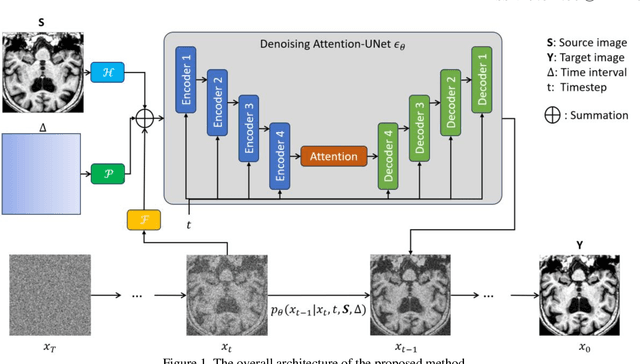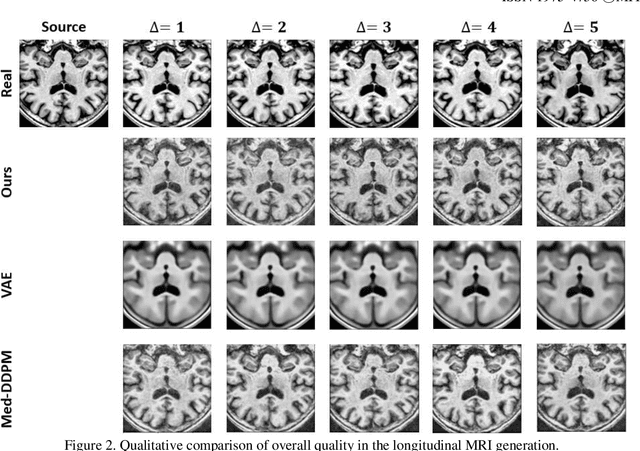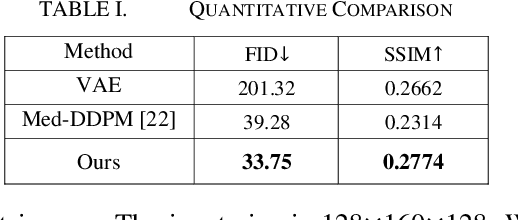Duy-Phuong Dao
Conditional Diffusion Model for Longitudinal Medical Image Generation
Nov 07, 2024


Abstract:Alzheimers disease progresses slowly and involves complex interaction between various biological factors. Longitudinal medical imaging data can capture this progression over time. However, longitudinal data frequently encounter issues such as missing data due to patient dropouts, irregular follow-up intervals, and varying lengths of observation periods. To address these issues, we designed a diffusion-based model for 3D longitudinal medical imaging generation using single magnetic resonance imaging (MRI). This involves the injection of a conditioning MRI and time-visit encoding to the model, enabling control in change between source and target images. The experimental results indicate that the proposed method generates higher-quality images compared to other competing methods.
* 4 pages, 2 figures, conference
 Add to Chrome
Add to Chrome Add to Firefox
Add to Firefox Add to Edge
Add to Edge